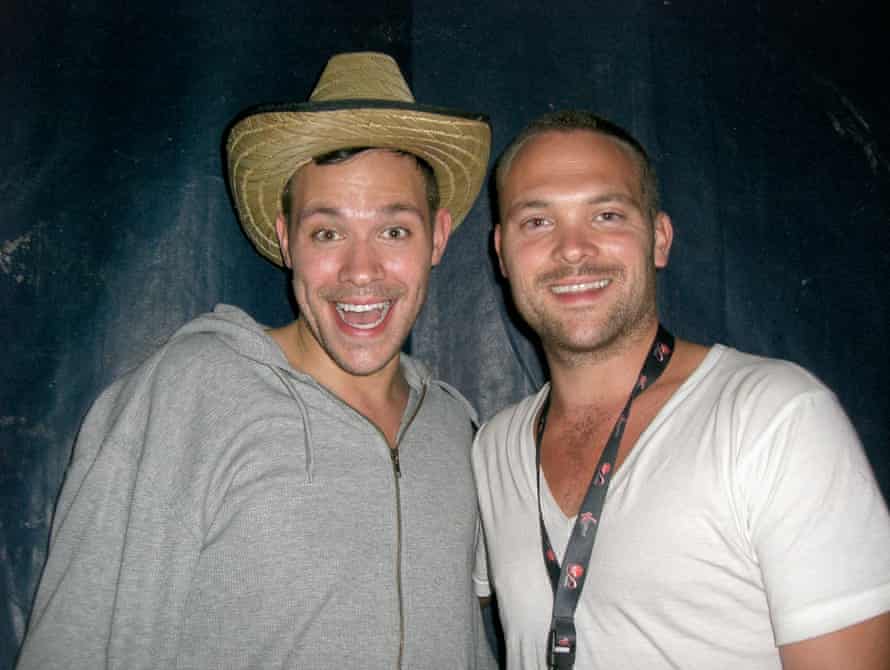
Will Young: Losing My Twin Rupert review – an unflinching portrait of 20 years of sadness | Television
The family sifts through childhood photos and marvels at the happiness. “Carefree … Look at your little tummies,” says his mother. His father feels the need to put them away. “So much waste. So much joy, so much potential … Such a waste that he’s gone now.”
They are the parents of the singer Will Young, who found fame in 2002 as the charming and worthy winner of Pop Idol, and his twin, Rupert. They are looking through photos of the boys as part of a moving documentary about Rupert, who killed himself last year after enduring anxiety, depression and alcoholism for more than 20 years.
Will Young: Losing My Twin Rupert (Channel 4) is a rare beast: a celebrity documentary that has an articulate subject, an affecting story and a sense of mission. Often, films in this genre induce an uncomfortable sense that the makers are exploiting grief, or that the celebrity is in need of cash or a kind person to tell them that some pain is best worked through behind closed doors.

For various reasons, the Youngs have taken the decision to speak out and to try to help others dealing with the terrible effects of alcoholism. “I’d like to know the moment it went wrong, as we go through his life,” says the twins’ father, quietly, beside the dining table strewn with photos.
The programme suggests possibilities – foremost among them the boys’ traumatic experiences at boarding school, of which the parents knew nothing for years – but there can be no definitive answers. We learn that Rupert’s suicide attempts began at 18 – “cries for help,” says Will.
There are accounts of late-night calls from police, cleaning sofas Rupert urinated on while blacked out, paying for repeated rehab stays, brief flares of hope in sober stretches, despair as he declined again and again. By the end, he was living in his twin’s house, with Will as his carer. Will cleaned up the sick every morning and helped Rupert go to the toilet, not knowing “what more I could do”. Rupert would knock on neighbours’ doors asking for money and pass out outside the newsagent. Eventually, the police came knocking with the news that Rupert had killed himself.
The film does not take the easy, reductive path of comparing the brothers’ lives. Instead, their stories are supplemented by candid, dignified interviews with others who have experienced alcoholism. These are conducted beautifully by Will; his self-effacing manner allows them plenty of space, while he brings in his own travails only when pertinent and supportive.
Melissa Rice is four years sober and works to get others the help that saved her after six years of hard drinking that “piled shame on top of shame”. She can’t forgive herself for what she put her mother through. “There weren’t really that many times when I resented [Rupert],” Will tells her. “Now, I’m just grateful I had 42 years with him.” Their conversation seems genuinely to help both parties.
It is the same when Will meets Natalie Needham, the organiser of the lockdown art-therapy project Stitch Away the Stigma. The last time she saw her alcoholic father was when she had him arrested and removed from her grandma’s house, effectively making him homeless. “The last thing I did was hit my brother,” Will reassures her. “I don’t have a problem with it. He deserved it.”
Losing My Twin Rupert also includes what feels like an increasingly necessary reference in medical programmes to the enormous difficulty in accessing professional help and care. Young is explicit about having been able to pay for Rupert’s many private rehab visits – and the inability of most of Britain’s estimated 1.6 million alcoholics and their loved ones to do so. The academic and practising psychiatrist Prof Julia Sinclair is explicit about the barriers to state-funded care (“Many things in the system are now broken”), noting that there are just five inpatient units left in the country, meaning desperate people are left searching for answers in ever-contracting circles.
This film is an unflinching portrait of 20 years of sadness that acknowledges the complexity around addiction with compassion and courage. Almost all such endeavours claim to want to reduce stigma. It is rare for it to feel as though they might do so.
In the UK and Ireland, Samaritans can be contacted on 116 123 or by emailing jo@samaritans.org or jo@samaritans.ie. In the US, the National Suicide Prevention Lifeline is 1-800-273-8255. In Australia, the crisis support service Lifeline is 13 11 14. Other international helplines can be found at befrienders.org
